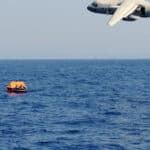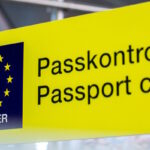Prior to the Russian-Ukrainian conflict, the diplomatic activity of almost the entire international community was at its most concentrated in an attempt to prevent the escalation. Within this framework, the military tool played a major role in supporting the will and credibility of both contenders, as it is more effective than others in the deterrent action carried out against the antagonist, that is, in making clear the disproportionality between the goal to be achieved and the cost (social and material) of the military solution.
This is also true for Italy, as there is no doubt that part of crisis management is precisely the prevention of a conflict through political strategies of deterrence - as much as possible concerted with other international elements - aimed at containing the confrontation itself.
If it is true that deterrence is the preventive action aimed at averting an unwanted action by the adversary, then ask ourselves whether Italy has the capacity to protect its people's interests at the approaching of any threat. Ask ourselves whether Italy today has the capacity to dissuade its potential adversary, capacity that must be supported by effective forms of strategic communication, directed to provoke in the opponent the perception of three combined effects: that the expected benefits will be denied to him anyway, that the imposed cost is not sustainable, and that the alternative conditions offered are acceptable. Let us ask whether the current political authority is aware that deterrence constitutes the main instrument of political management of security for the purpose of international stability; that an effective national deterrence strategy cannot disregard the coordinated use of all instruments of national power, which are called upon to identify specific sectoral measures (e.g., diplomacy measures, targeted public information, trade restrictions, increased state of alert, use of the fleet). Let us ask whether Italy has at its disposal a military instrument that is credible in the eyes of the opponent, whether it has an intelligence system based on multi-level indicators, calibrated for specific crisis areas and related verification or assessment tools.
The truth is that Italy can consider itself a free nation only if it is in possession of an integrated basket of possible intervention options, of timely strategic decision-making factors, capable of influencing the action of the opponent in the desired direction (e.g., discouraging support from regional neighbors and isolating the hostile). Italy is a free nation only if it also knows how to apply coercion toward the enemy, inducing it to behave in a way it would not otherwise choose.
And if deterrence activities fail, would Italy be able to apply - if necessary - the weighted use of force, as diplomacy's last resort? A force used both in direct form, to diminish the adversary's ability to act, and indirectly, so as to affect his ability to make timely and effective decisions. A force aimed at creating confusion and disorder in the opponent by degrading in particular his moral and physical capacity, in order to limit his freedom of action, cause his defeat through the abatement of his will and ability to fight.
Only with this ability can Italy consider itself a free, independent, true nation.
Senior Fellow of the Centro Studi Machiavelli. Admiral of division (res.), former commander of destroyers and frigates, he has held important diplomatic, financial, technical and strategic assignments for the Defence and Navy Chiefs of Staff, both at home and abroad, at sea and on land, pursuing the application of capabilities aimed at making the Italian defence and security policy effective.









Scrivi un commento